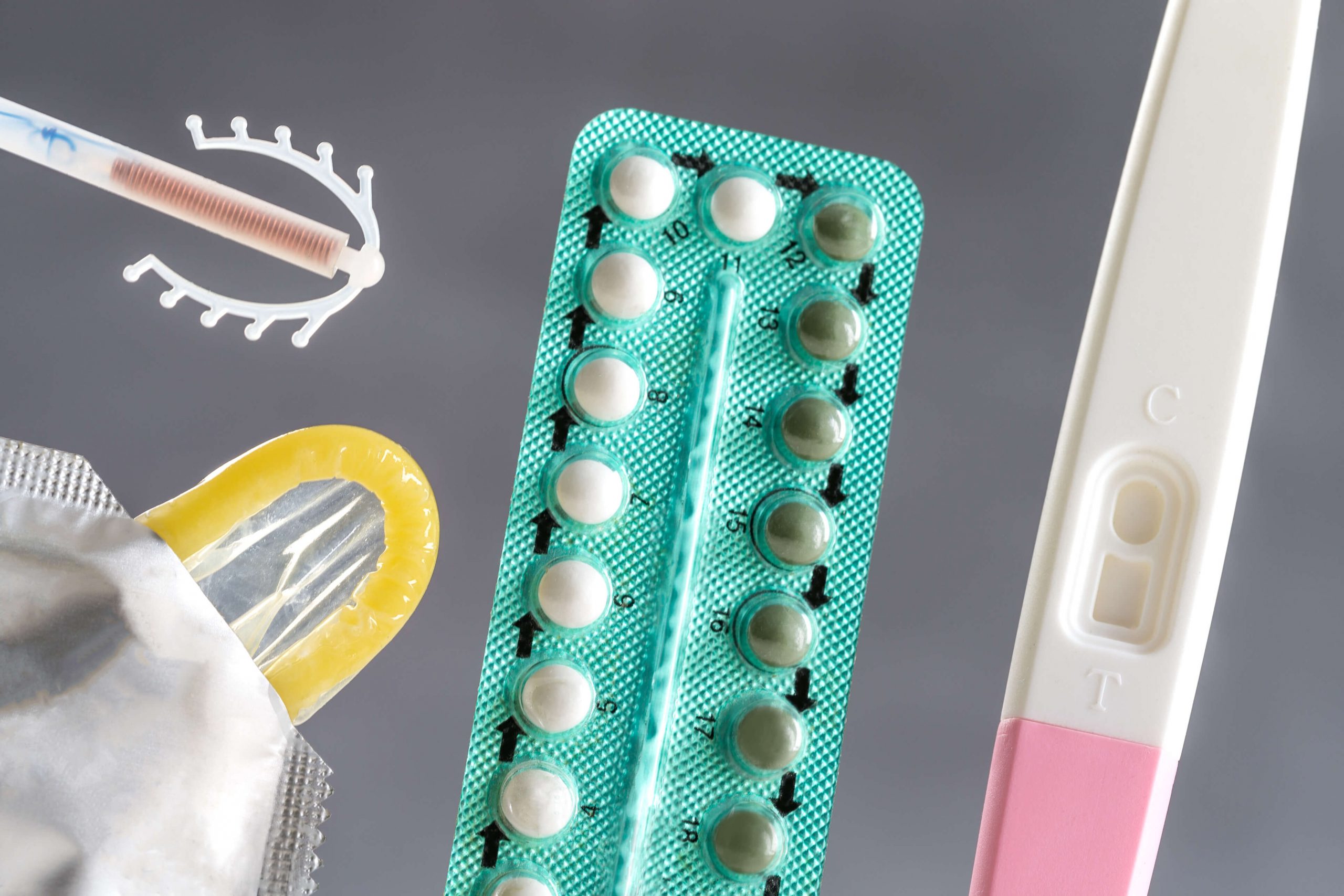Women's Health
5 Questions Every Woman Can Ask Her Gynaecologist

Apart from the fear of physical discomfort, visiting a gynaecologist is often associated with anxiety. Some women may feel embarrassed to ask questions while some may not be sure of what to ask. However, you should remember that having an honest and open conversation with your gynaecologist will help you take better care of your sexual and reproductive health.
Below are 5 important questions you can ask your gynaecologist during your next visit if you are experiencing any of these issues.
1. What vaginal discharge is considered normal?
Vaginal discharge is an important function of a woman’s body. It is a secretion produced by the glands inside your vagina and cervix. Vaginal discharge plays a significant role in keeping the vagina clean and moist, as well as protecting it from irritation and infections. Your gynaecologist can help you distinguish between the healthy and abnormal types of discharge.
The consistency, odour, and colour of the vaginal discharge are largely predetermined by hormonal fluctuations in your body. Pregnancy, menopause, and your menstrual cycle affect the character of your vaginal secretions. For instance, creamy and white discharge is common at the beginning and end of the cycle. When the discharge becomes stretchy and clear rather than watery, it indicates that you are likely ovulating.
If not accompanied by other symptoms like burning, itchiness, and redness, these secretions are perfectly normal. However, if you notice a change in the volume, colour, and odour of your vaginal discharge and experience discomfort in the vaginal area, you should consult your gynaecologist. Abnormal discharge is typically associated with vaginal infections and other conditions that include:
- Bacterial vaginosis
- Yeast infection
- Sexually transmitted infections (STIs) – trichomoniasis, gonorrhoea, chlamydia
- Pelvic inflammatory disease (PID)
- Human papillomavirus (HPV) or cervical cancer
2. Are period cramps normal?
Most women experience pain and cramps in the abdomen, back or thighs during the first few days of their menstruation. The severity of period cramps is different for everyone. Some women may feel a continuous dull ache, or sudden shooting episodes of pain, while others may experience a combination of both. Mild cramps are normal and can easily be managed. However, if you experience severe chronic pain that affects your everyday activities during menstruation, you should consult a gynaecologist to find out if there are any underlying conditions causing the pain.
Dysmenorrhea is a medical term for period cramps. There are two types of dysmenorrhea: primary and secondary.
Primary Dysmenorrhea – This is a common type of period cramps that are not associated with any disease. The pain typically starts a few days before the period or during the first couple of days of bleeding. Primary dysmenorrhea is linked to prostaglandins, the chemical that causes uterus contractions. Normally, primary menstrual cramps become less painful as you age and may disappear after you have a baby.
Secondary Dysmenorrhea – This type of dysmenorrhea is caused by problems in the reproductive system. These sharp period cramps may be a symptom of an infection, endometriosis, polycystic ovary syndrome (PCOS), Pelvic Inflammatory Disease (PID), or uterine fibroids.
Your gynaecologist will determine the nature of your dysmenorrhea and provide treatment to manage the symptoms.
3. Why do I experience pain during intercourse?
If you experience pain during sexual intercourse, you are not alone. In fact, 3 out of 4 women have pain during intercourse at some time during their lives. However, if this happens frequently, you can and should speak to your gynaecologist about it, no matter how “embarrassing” it may seem. Your gynaecologist will help you identify the underlying conditions and provide treatment accordingly.
Medically referred to as dyspareunia, pain during sex is recurring pain that happens during or after sexual intercourse. Many women report discomfort in the vulva (the outer area surrounding the vagina), inside the vagina, perineum (area located between the vulva and anus), bladder, or their lower back.
Causes of painful intercourse can be of psychological and physical nature. Typically, health conditions responsible for pain during sexual intercourse include:
- Bacterial or yeast infections
- Urinary tract infections
- Vaginismus (involuntary spasms of the vaginal muscles during penetration)
- Endometriosis
- Uterine fibroids
- Ovarian cysts
- Vaginal dryness related to the hormonal changes
- Pelvic inflammatory disease
Latest Articles
How Are Abdominal Hernias Treated?
What to Expect from Colorectal Surgery
How to Treat Breast Inflammatory Conditions
Gynaecomastia: Understanding Male Breast Cancer
4. If I get on the birth control pills what side effects should I be aware of?
The oral contraceptive pill, commonly referred to as “the pill”, is a form of hormonal birth control. They stop your body from ovulating and alter the cervical discharge so that it becomes difficult for the sperm to get through the cervix and meet an egg.
There are two main types of birth control pills: combination pills and the so-called “mini pills.”
Combination pills contain both human-made estrogen and progesterone (progestin), whereas mini pills contain only the hormone progesterone.
The common concern regarding going on the pills is that they might cause weight gain. This is a myth with no scientific evidence. In some cases, women do notice a slight increase in weight when they start to take birth control pills. It is often a temporary side effect caused by water retention. Side effects of the pills may be different for each individual, some examples of side effects include:
- Nausea
- Bloating
- Spotting and bleeding between periods
- Vaginal dryness
- Headaches
- Breast tenderness
- Mood swings
- Yeast and bacterial infections
During a consultation with your gynaecologist, they will evaluate your overall health and decide whether birth control pills are the best option for you. You should discuss the effectiveness, ease of use, all major benefits and drawbacks as well as other concerns regarding the pills you may have.
5. What checkups should I have and how regularly?
Regular gynaecological checkups are vital in maintaining a healthy lifestyle and preventing any issues related to the women’s reproductive system. Your gynaecologist will perform the following screening tests to examine your reproductive organs:
Pelvic Exams and Pap Smear Test
During a pelvic exam, a gynaecologist will examine your vulva, vagina, cervix, fallopian tubes, ovaries, and uterus. It is recommended that all women aged 21 or older have a pelvic exam once a year.
A Pap smear test is performed by taking a sample of the vaginal discharge and some secretions from the cervix. This test is done to detect precancerous or cancerous cells on your cervix. Gynaecologists recommend having Pap tests every three years for women ages 21 – 65, whether or not they are sexually active.
Screening for Sexually Transmitted Infections (STIs)
Many STIs do not have any particular symptoms, which makes them extremely hard to detect. If left untreated, STIs can cause severe problems linked to infertility, cancer and reproductive organs damage. Testing is the only safe way to know whether or not you have an STI. STI screening covers testing for the following conditions:
- Chlamydia and gonorrhoea
- Human immunodeficiency virus (HIV)
- Syphilis and hepatitis
- Genital herpes
- Human papillomavirus (HPV)
If you are sexually active, you should repeat testing for STIs at least once a year.
Preconception Checkup
A preconception checkup can be done before trying to conceive, to ensure you are healthy when you get pregnant. At your preconception checkup, your gynaecologist will search for any health conditions that may affect your pregnancy or your baby. It is important to have a checkup even if you already have a child, as your health may have changed since your last pregnancy.
Conclusion
There are many conditions that can affect women’s health, such as the human papillomavirus (HPV) and cervical cancer. These health conditions can present no signs or symptoms.
While most women are aware of their reproductive health during puberty, there may be many other conditions that can affect a woman’s health as they age. Some of these conditions can present no signs or symptoms and going for regular screening with a gynaecologist can detect these conditions at earlier stages when they can be treated most effectively.
At SOG, our team of experienced gynaecologists understand the importance of giving you the good quality health care you deserve and improving your overall quality of life.
For gynaecology services, speak to any of our SOG gynaecologists today:
WHO WE ARE
About SOG Health Pte. Ltd.
Established in 2011, SOG Health Pte. Ltd. (“SOG”) is a leading healthcare service provider dedicated to delivering holistic health and wellness services to the modern family.
With a long and established track record in Singapore providing Obstetrics and Gynaecology (“O&G”) services such as pre-pregnancy counselling, delivery, pregnancy and post-delivery care, the Group has since further expanded its spectrum of healthcare services to include Paediatrics, Dermatology, and Cancer-related General Surgery (Colorectal, Breast & Thyroid).
The Group’s clinics, under its four operating segments of O&G, Paediatrics, Oncology and Dermatology, are strategically located throughout Singapore to provide easy access to its patients.
- Obstetrics
- Gynaecology
- GynaeOncology
- Breast, Thyroid & General Surgery
- Colorectal, Endoscopy & General Surgery
- Dermatology
- Paediatrics
Consult With A Specialist From SOG
Visit one of our specialists today to learn more about your health!
Recommended Specialists
Book An Appointment
Fill up this form and our clinic will get back to you shortly.
For general enquiries, please click here.








